
Jane Austen was an English novelist known primarily for her six novels, which implicitly interpret, critique, and comment upon the British landed gentry at the end of the 18th century. Austen's plots often explore the dependence of women on marriage for the pursuit of favourable social standing and economic security. Her works are implicit critiques of the novels of sensibility of the second half of the 18th century and are part of the transition to 19th-century literary realism. Her use of social commentary, realism, and irony have earned her acclaim amongst critics and scholars.

Hester ChaponenéeMulso, was an English writer of conduct books for women. She became associated with the London Bluestockings.
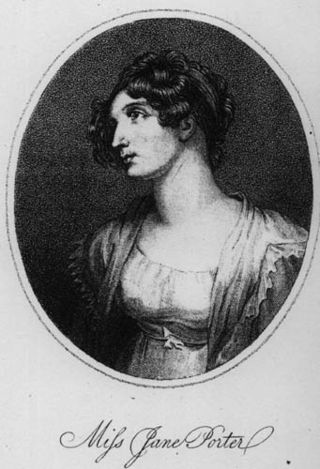
Jane Porter was an English historical novelist, dramatist and literary figure. Her bestselling novels, Thaddeus of Warsaw (1803) and The Scottish Chiefs (1810) are seen as among the earliest historical novels in a modern style and among the first to become bestsellers. They were abridged and remained popular among children well into the twentieth century.

Caroline Maitland (1858–1920) was an English poet and writer. She worked under the name "Dollie Radford" after she married Ernest Radford.
Nancy Barbara Bond is an American author of children's literature. In 1977 her first book, A String in the Harp, was fantasy novel with an element of folklore, set in West Wales. It received a Newbery honor and the Welsh Tir na n-Og Award, and remains in print.

Margaret Ayer Barnes was an American playwright, novelist, and short-story writer. She was awarded the Pulitzer Prize.

Annie Shepherd Swan, CBE was a Scottish journalist and fiction writer. She wrote mainly in her maiden name, but also as David Lyall and later Mrs Burnett Smith. A writer of romantic fiction for women, she had over 200 novels, serials, stories and other fiction published between 1878 and her death. She has been called "one of the most commercially successful popular novelists of the later nineteenth and early twentieth centuries". Swan was politically active in the First World War, and as a suffragist, a Liberal activist and founder-member and vice-president of the Scottish National Party.
Ada Wallas or Ada Radford was an English writer and teacher.
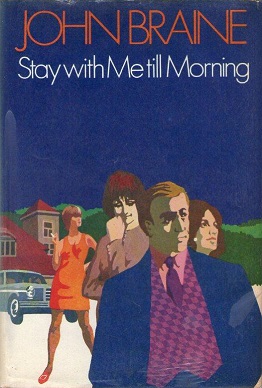
Stay with Me Till Morning is a 1970 novel by the British writer John Braine.

The Pious Agent is a 1975 spy thriller novel by the British writer John Braine.

The House in Dormer Forest is a 1920 romance novel by the British writer Mary Webb. It was part of a wave of regional novels set across Britain, in Webb's case in her native Shropshire. She wrote it while living at her home near Bayston Hill. It was one of several works that inspired the later parody novel Cold Comfort Farm by Stella Gibbons.
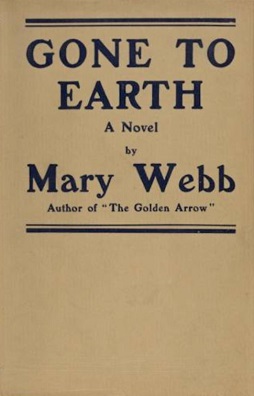
Gone to Earth is a 1917 romance novel by the British writer Mary Webb. It was her second novel following her debut The Golden Arrow the previous year. It received positive reviews and Rebecca West described it as her book of the year. It is set in Shropshire around Long Mynd and Wenlock Edge. In 1935 it was one of the first batch of Penguin Books published.

Paying Guests is a 1929 comedy novel by the British writer E.F. Benson, best known as the author of the Mapp and Lucia series. The story takes place at Wentworth, a boarding house in the fictional resort town of Bolton Spa. It focuses on the eccentric collection of summer residents, mostly there to try and recover their health, overseen by the domineering former Indian Army Colonel Chase. According to a pair of critics, "The coming together of character and situation in Paying Guests creates a comic masterpiece, worthy to stand alongside the Mapp and Lucia books".
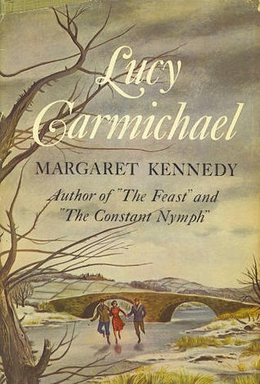
Lucy Carmichael is a 1951 romantic drama novel by the British writer Margaret Kennedy. It was her tenth published novel. It was well-received by critics but did not repeat the success of her earlier hits The Constant Nymph and Escape Me Never. It was a Literary Guild choice in America. In 2011 it was reissued by Faber and Faber.

The Midas Touch is a 1938 novel by the British writer Margaret Kennedy. It was her eighth novel, she then took a decade-long break before producing her next work The Feast in 1949. It was a Daily Mail Book of the Month.

The Ladies of Lyndon is a 1923 novel by the British writer Margaret Kennedy. Her debut novel, it was rell-received and she followed it the next year with her breakthrough novel The Constant Nymph.
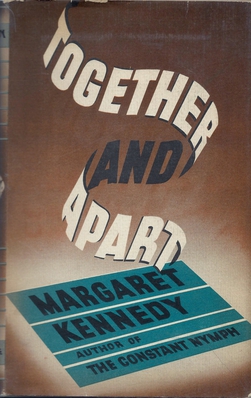
Together and Apart is a 1936 novel by the British writer Margaret Kennedy, her seventh novel. Kennedy was motivated to write it by an increasing number of divorces amongst her acquaintances.

Red Sky at Morning is a 1927 novel by the British writer Margaret Kennedy, her third. Her previous novel The Constant Nymph had been a major critical and commercial success, and it was felt that her new novel failed to recapture this. Sylvia Lynd reviewed it saying "Few novels have so exquisite a forerunner as The Constant Nymph with which to compete. Compared with that, Red Sky at Morning, it must be admitted, is far less moving, less inevitable in the progress of its events, and less well stocked with fascinating characters. Compared with any ordinary novel, however, it is very good indeed - finely wrought, just, sensible, perceptive and witty".

The Feast is a 1949 novel by the British writer Margaret Kennedy. It is a modern reworking of the seven deadly sins. Her ninth novel, it was her first in more than a decade. It was a Literary Guild choice in America.

The Fool of the Family is a 1930 novel by the British writer Margaret Kennedy. It is the sequel to her 1924 bestseller The Constant Nymph.


















